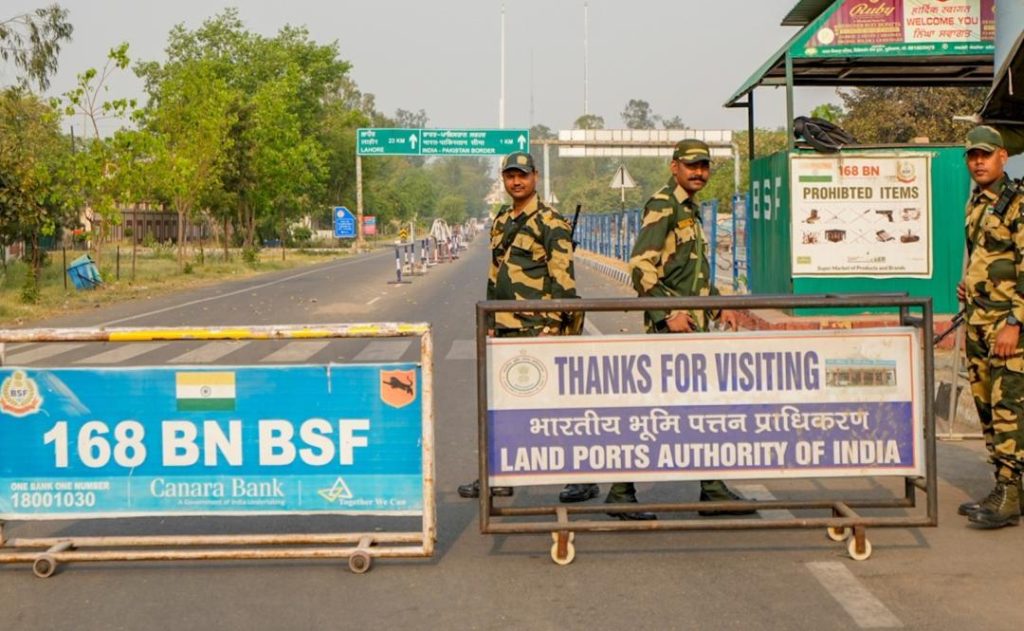
Attari-Wagah Border Between India and Pakistan Completely Closed
In a shocking development, the Attari-Wagah border between India and Pakistan has been completely closed, according to a report by PTI on Thursday. The closure of the border marks a significant escalation in tensions between the two nuclear-armed neighbors, who have been engaged in a long-standing dispute over various issues, including Kashmir and terrorism.
According to the report, no person from either side crossed the border on Thursday, marking the first time in recent memory that the border has been completely shut down. The closure of the border is a significant move, as it is a vital crossing point for people traveling between the two countries.
The decision to close the border was reportedly taken by Pakistan, which had earlier shut down the border and stopped accepting its citizens who were being deported by India. The mass deportations followed the Pahalgam terror attack, in which 26 tourists were killed. The attack was carried out by a group of terrorists who infiltrated from Pakistan, and it sparked widespread outrage and anger in India.
The Pahalgam attack was one of the deadliest terrorist attacks in recent years, and it has had a significant impact on relations between India and Pakistan. The attack was widely condemned by governments around the world, and it has led to a significant increase in tensions between the two countries.
In the aftermath of the attack, India has been pushing for Pakistan to take action against terrorist groups operating on its soil. Pakistan has denied any involvement in the attack, but India has been pressing for concrete action to be taken against terrorist groups.
The closure of the Attari-Wagah border is a significant move, as it is a vital crossing point for people traveling between the two countries. The border is used by thousands of people every day, including tourists, businessmen, and pilgrims.
The closure of the border is likely to have significant economic and humanitarian implications for people on both sides of the border. Many people rely on the border for their livelihoods, and the closure of the border is likely to cause significant disruption and hardship.
The Indian government has been under pressure to take action against Pakistan in the wake of the Pahalgam attack, and the closure of the border is seen as a significant move in that direction. The government has been pushing for Pakistan to take action against terrorist groups operating on its soil, and the closure of the border is a significant escalation of the tensions between the two countries.
However, the closure of the border is not without its risks. The border is a sensitive issue, and the closure of the border could lead to a significant escalation of tensions between the two countries. The border is also a key point for trade and commerce between the two countries, and the closure of the border could have significant economic implications.
In conclusion, the closure of the Attari-Wagah border between India and Pakistan is a significant development that marks a significant escalation of tensions between the two countries. The closure of the border is a response to the Pahalgam terror attack, and it is a move that is likely to have significant economic and humanitarian implications for people on both sides of the border.
As the situation continues to unfold, it is important for people to be aware of the developments and to be prepared for any eventuality. The closure of the border is a significant move, and it is important for people to be aware of the implications of this move.






